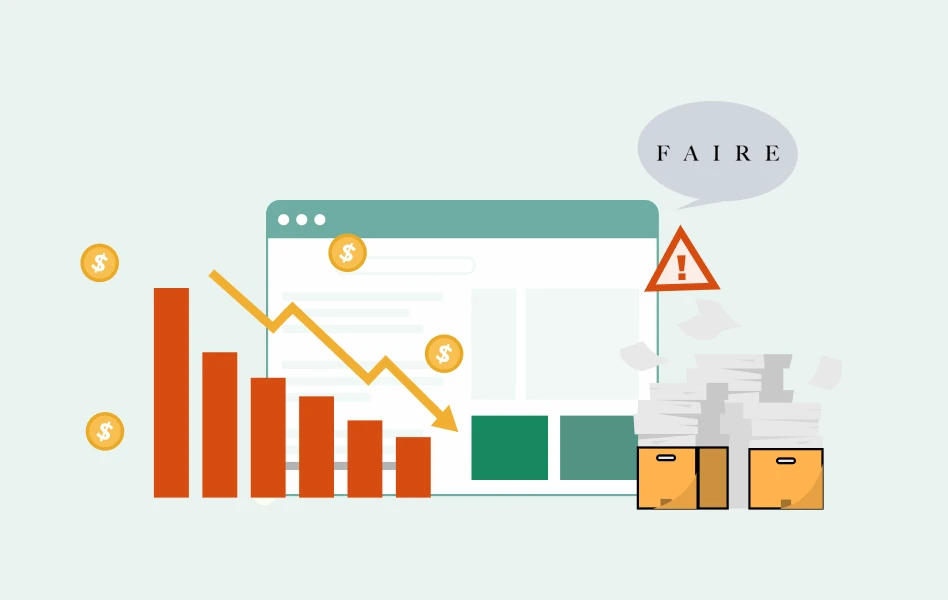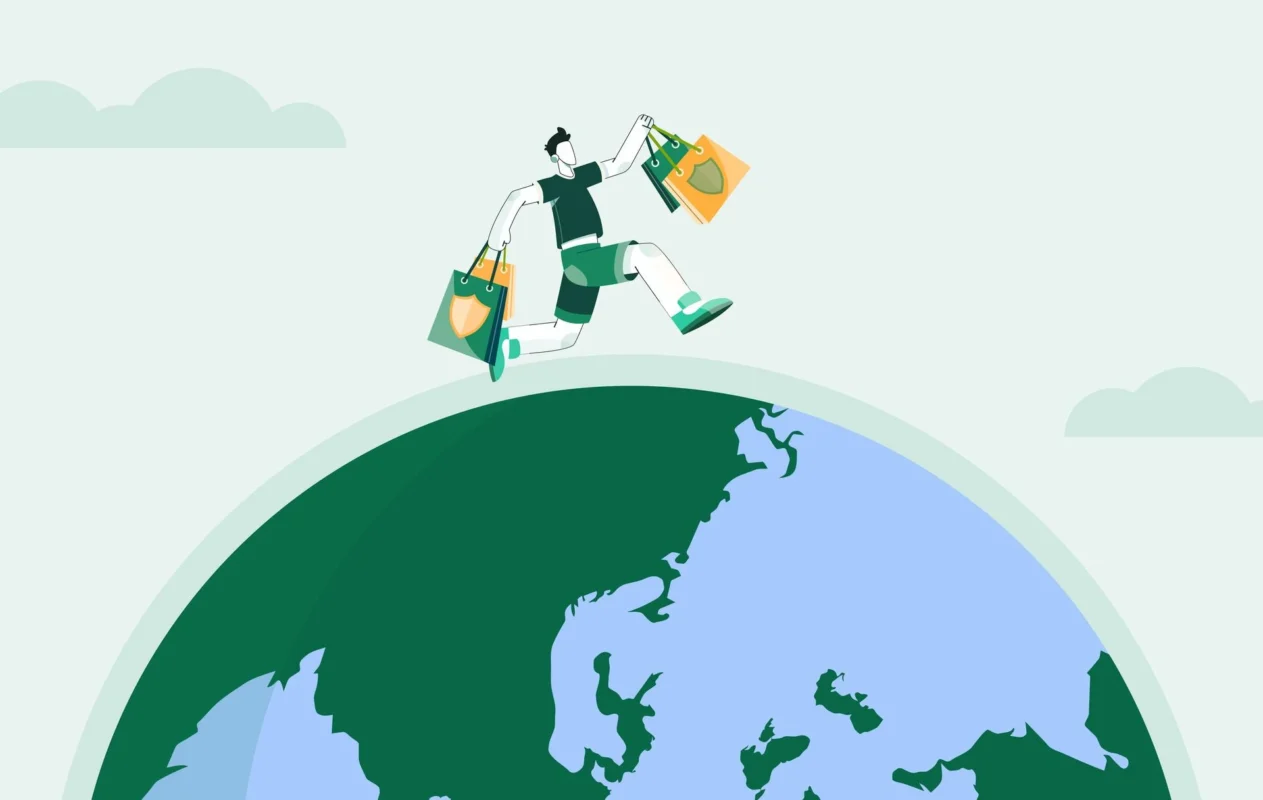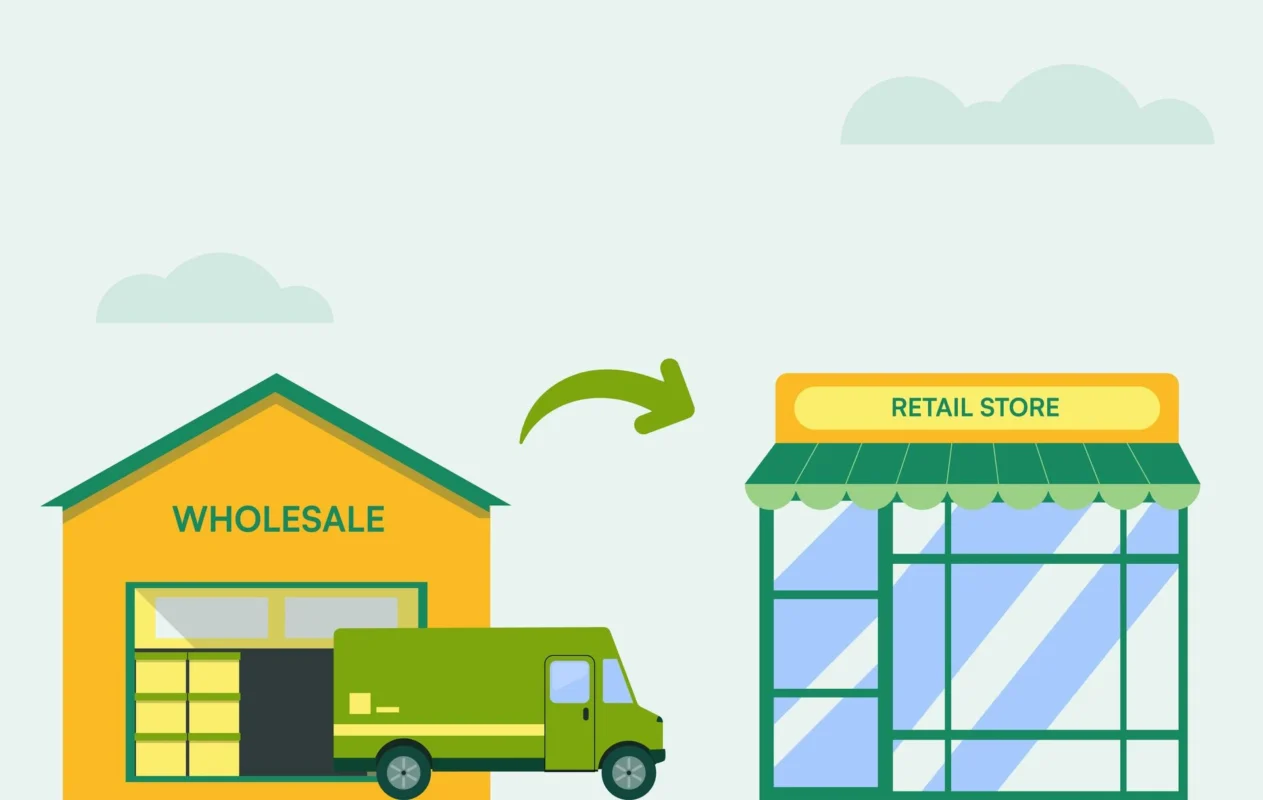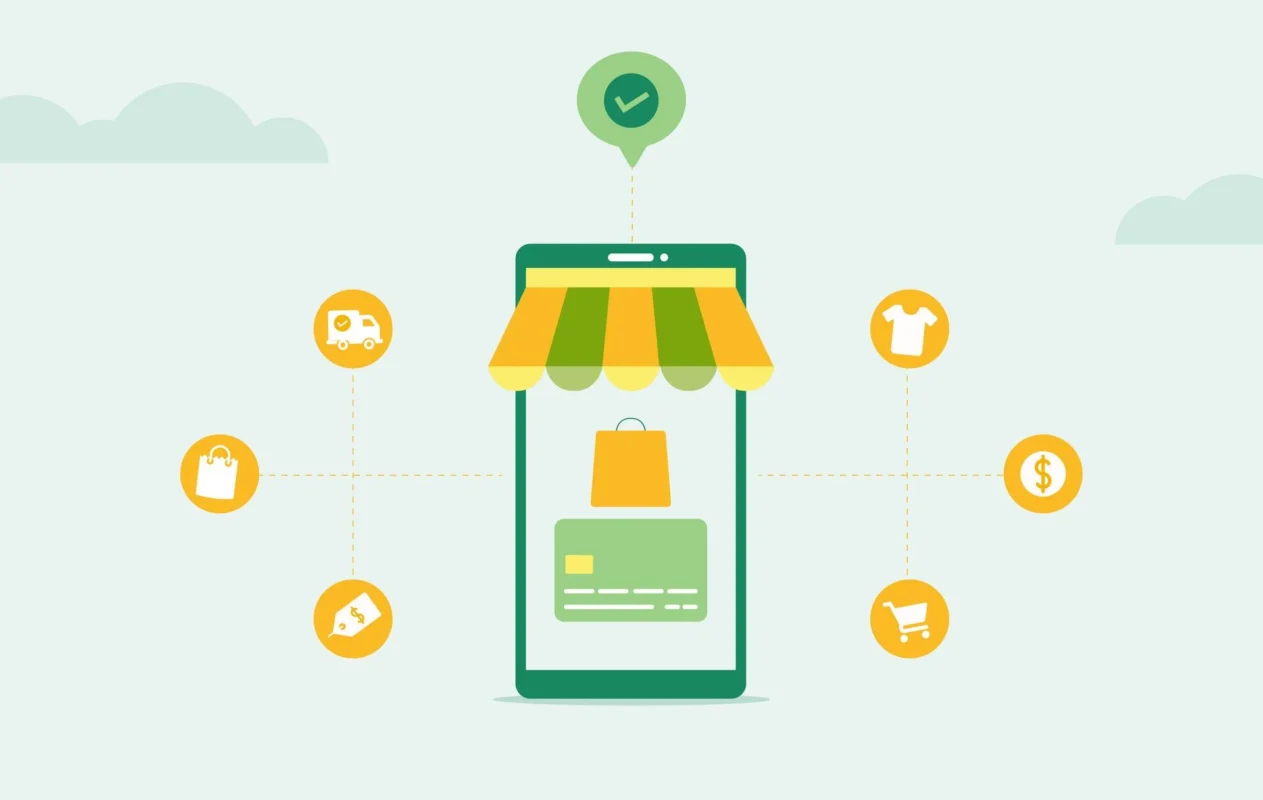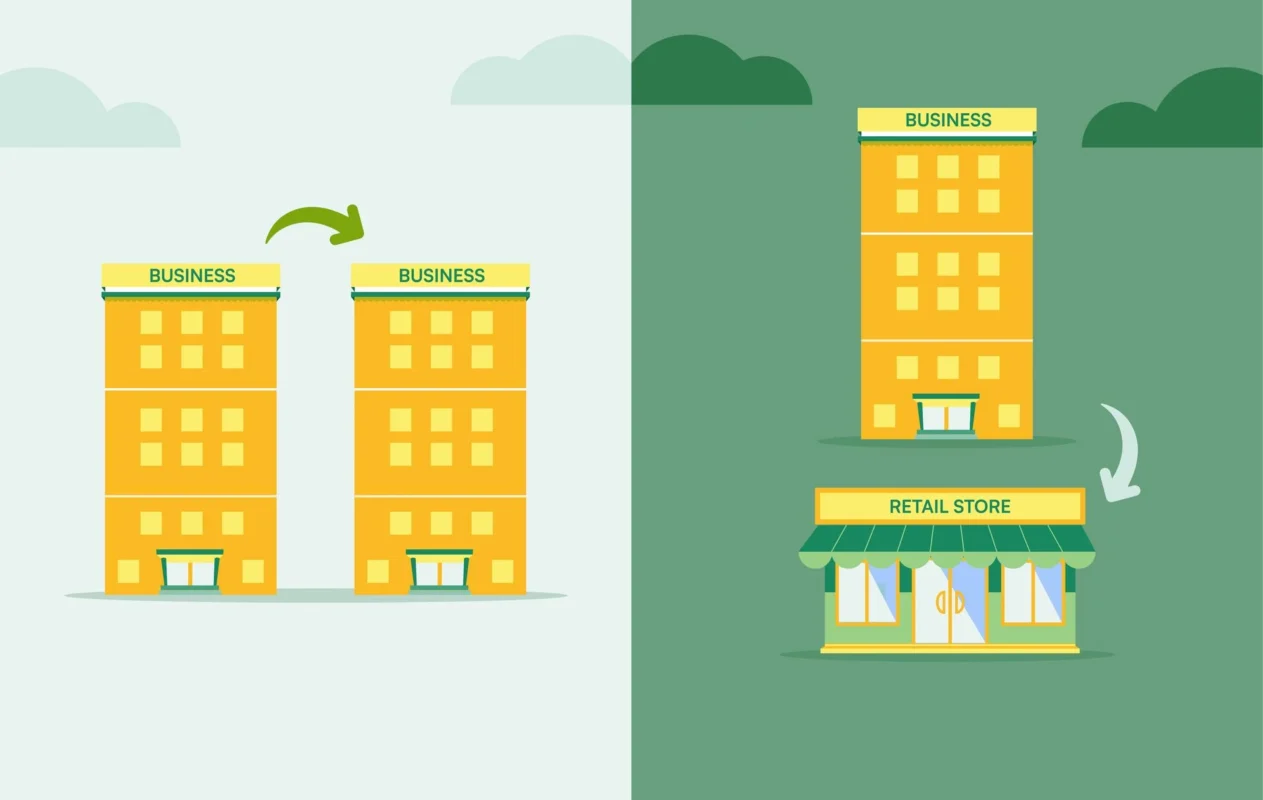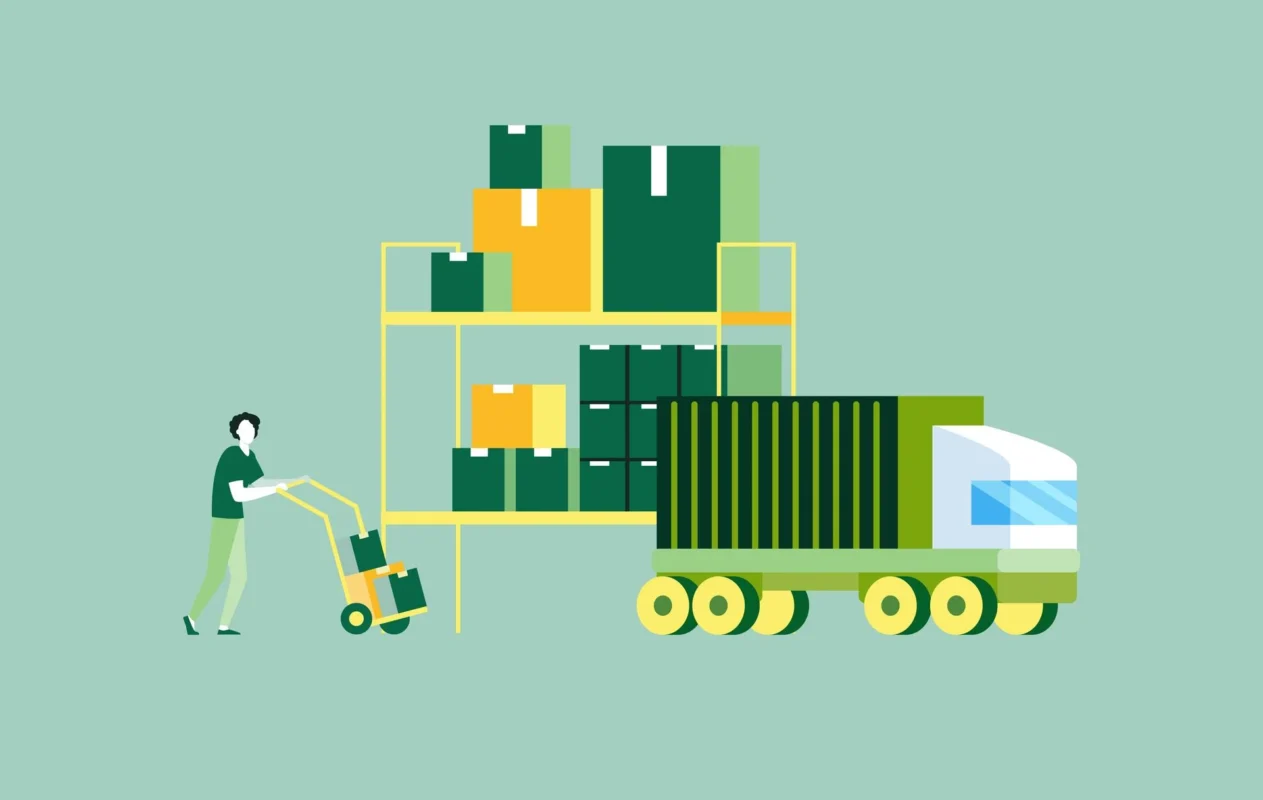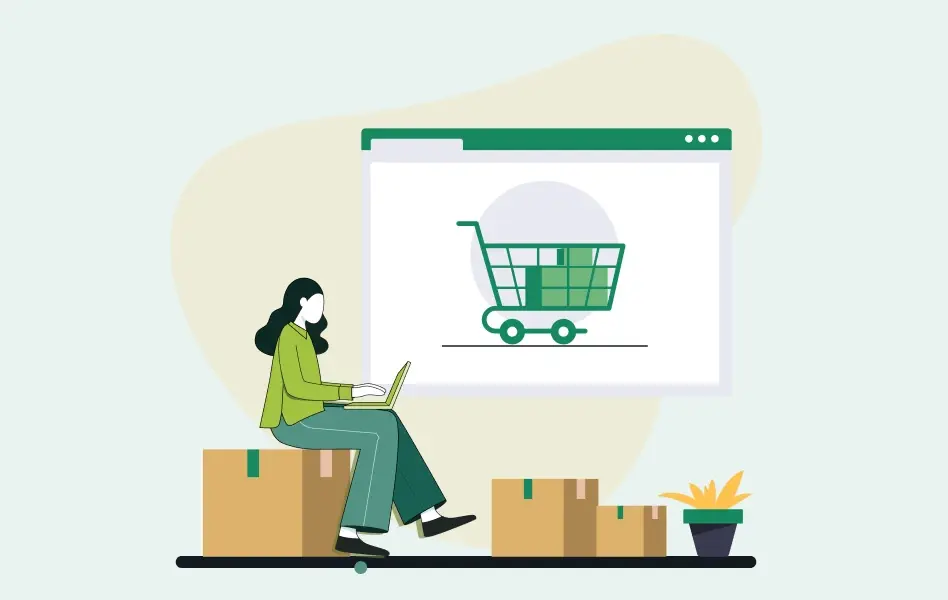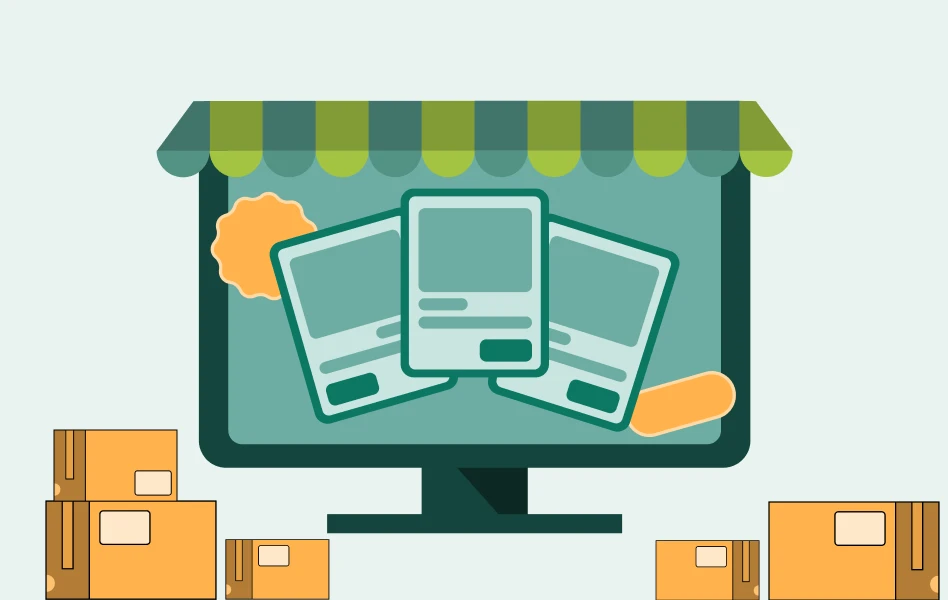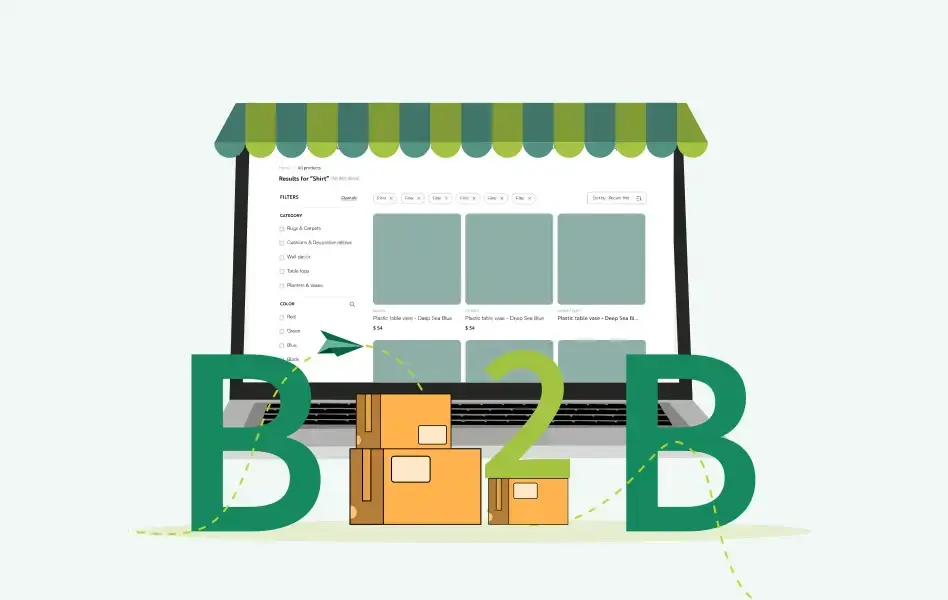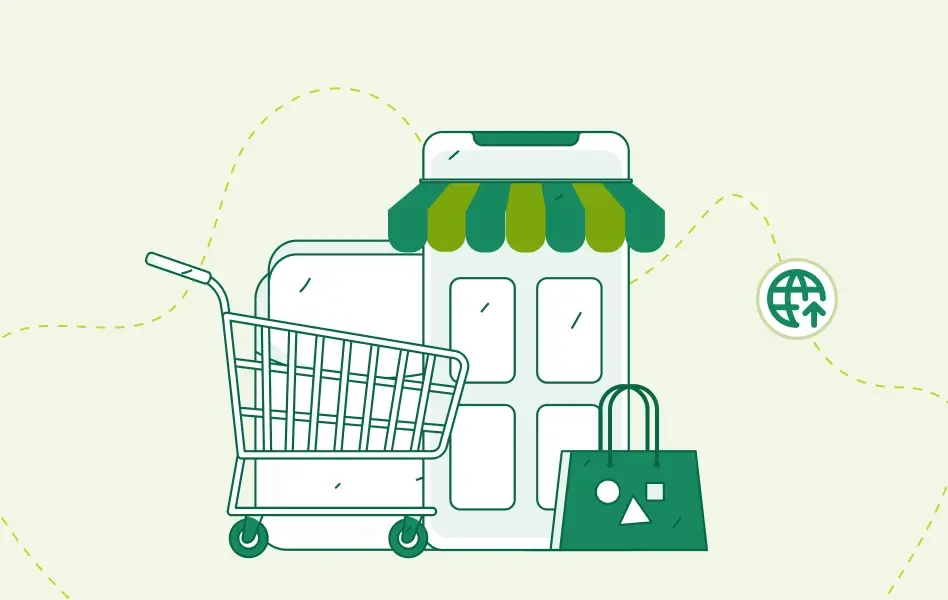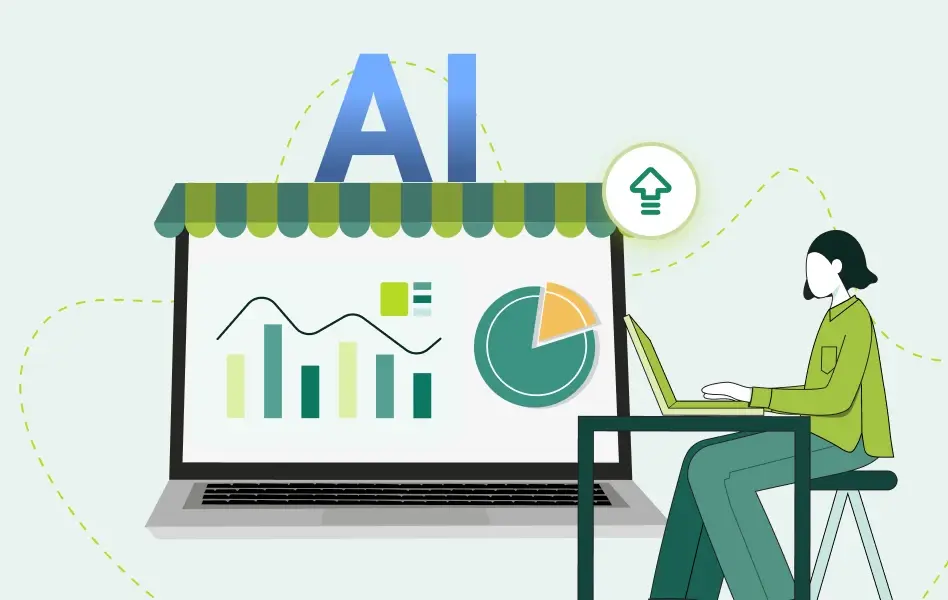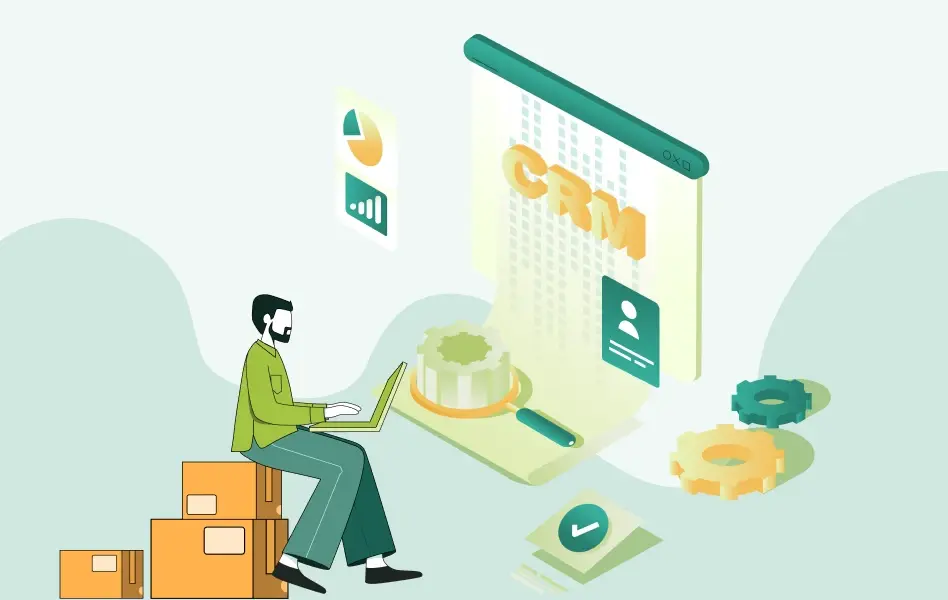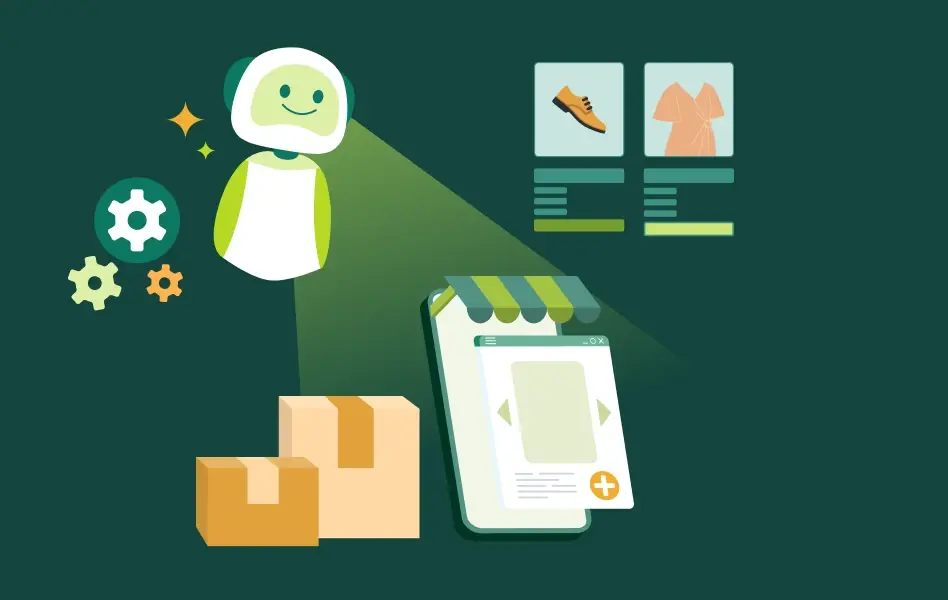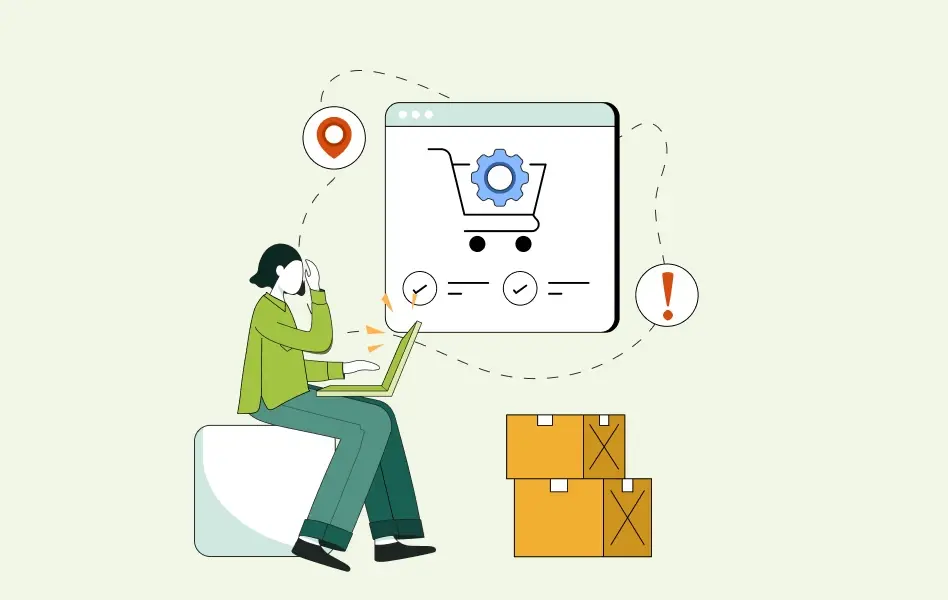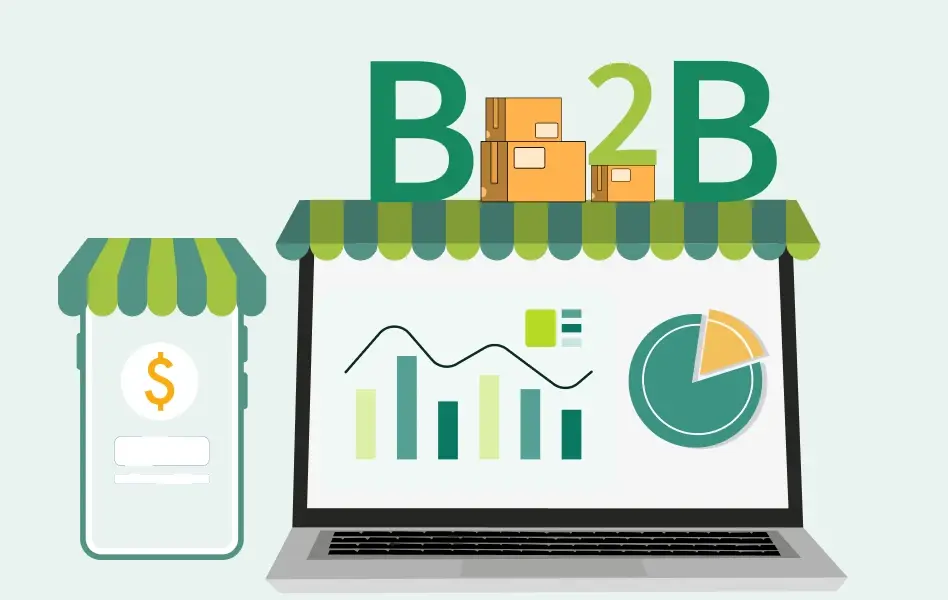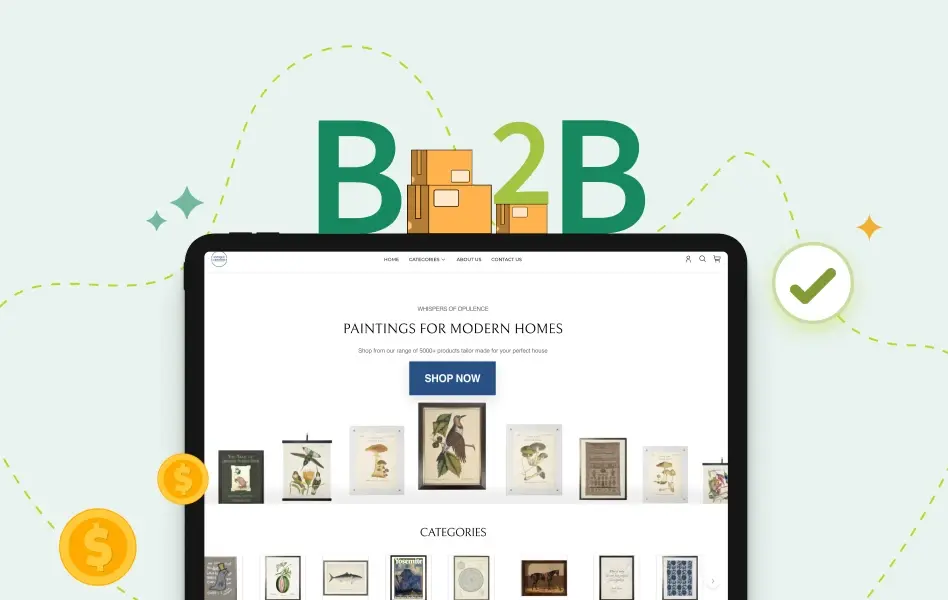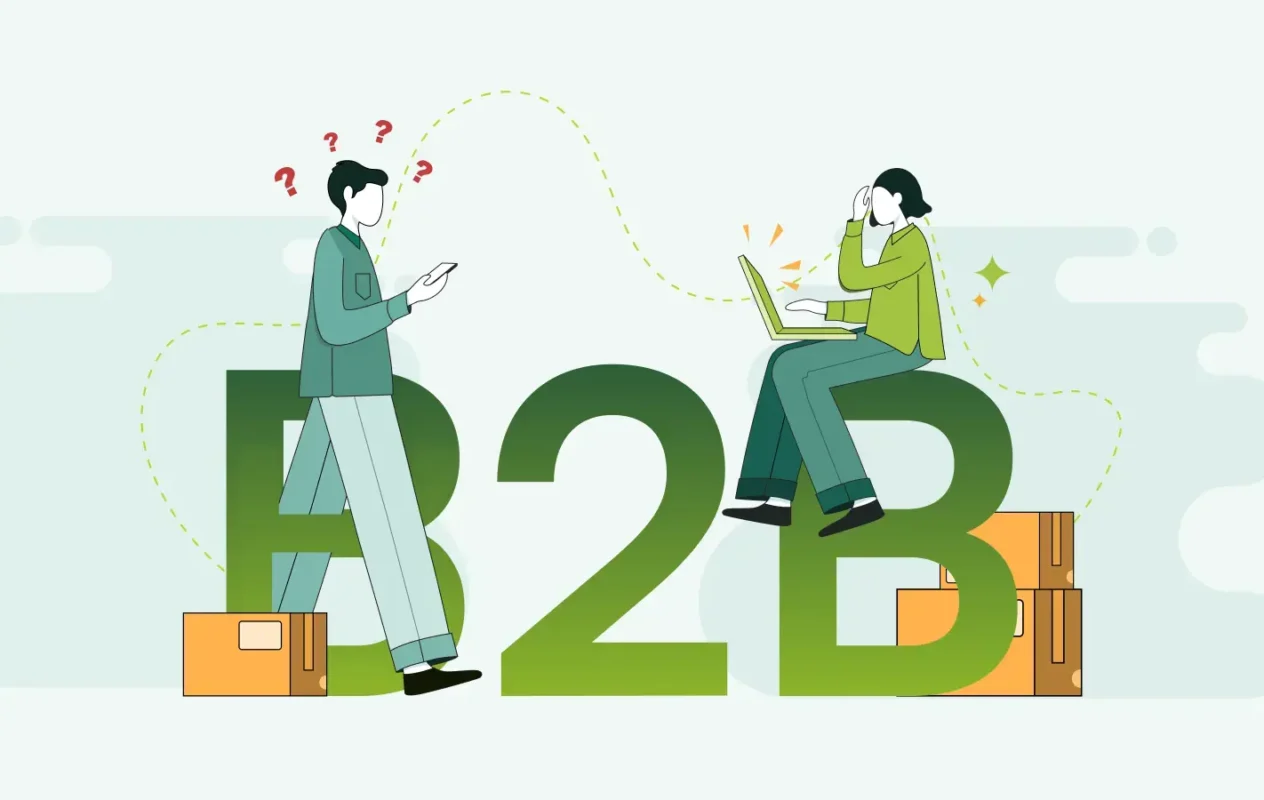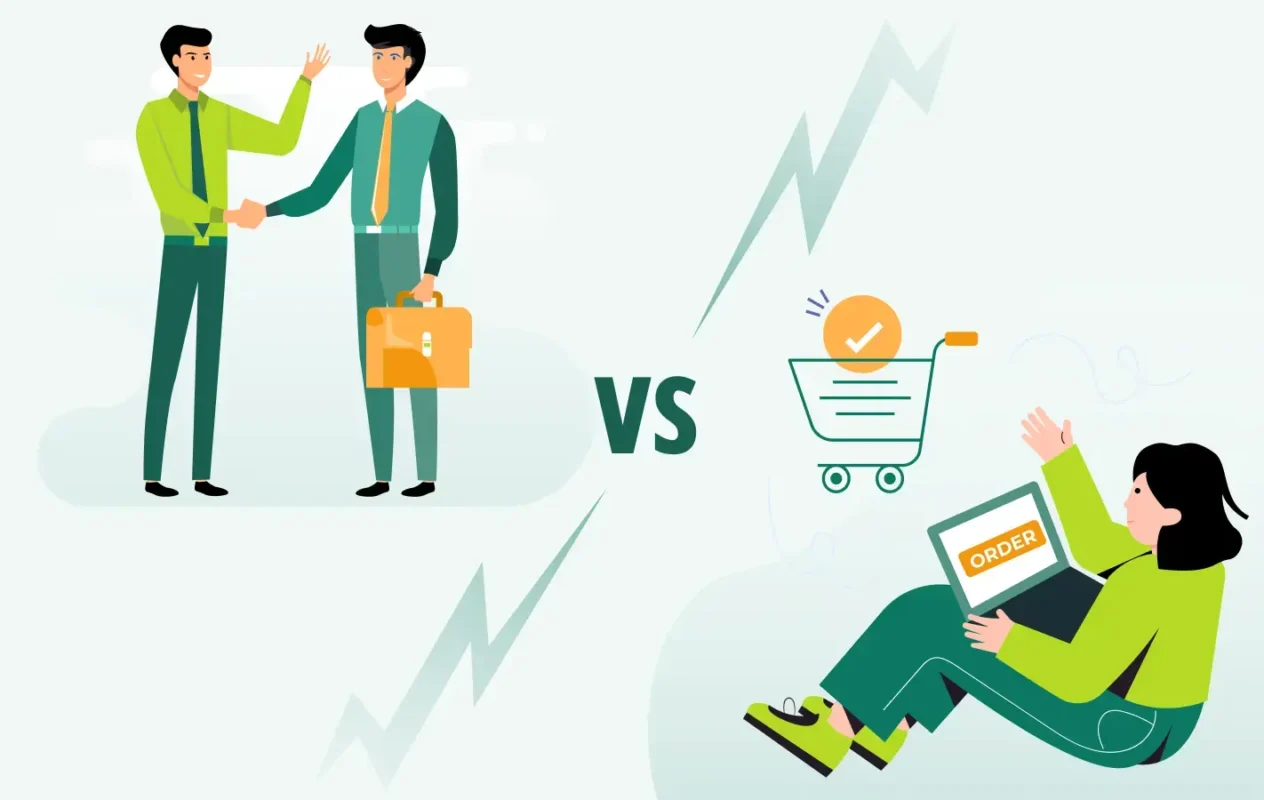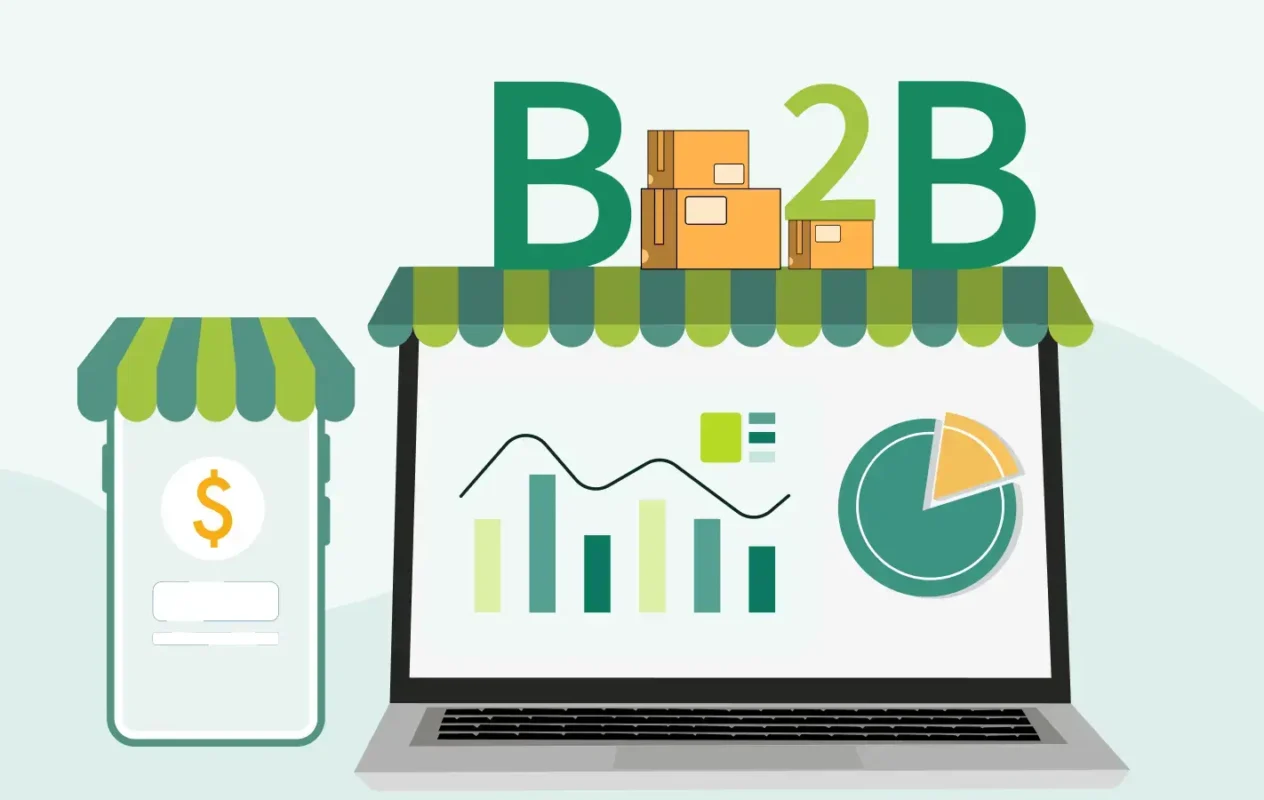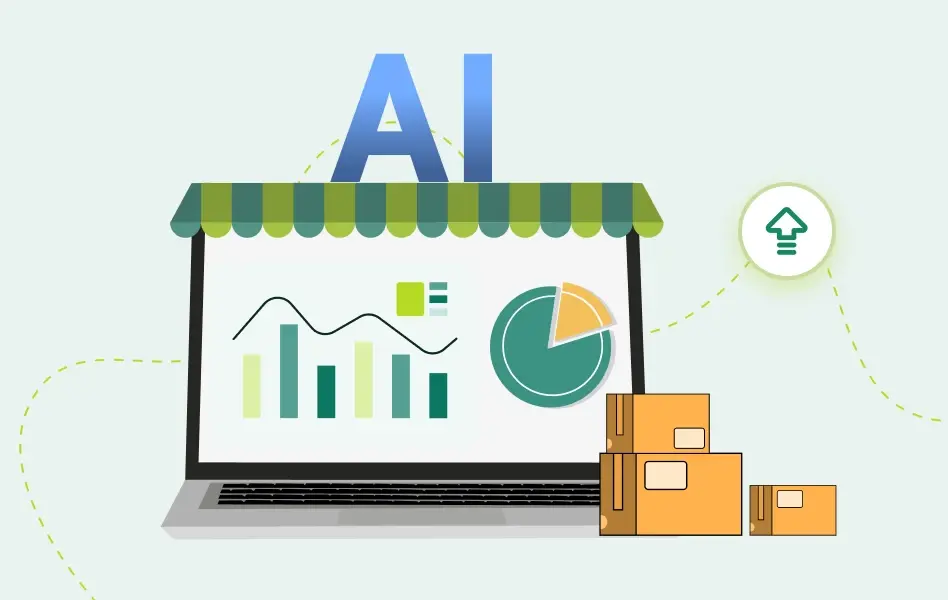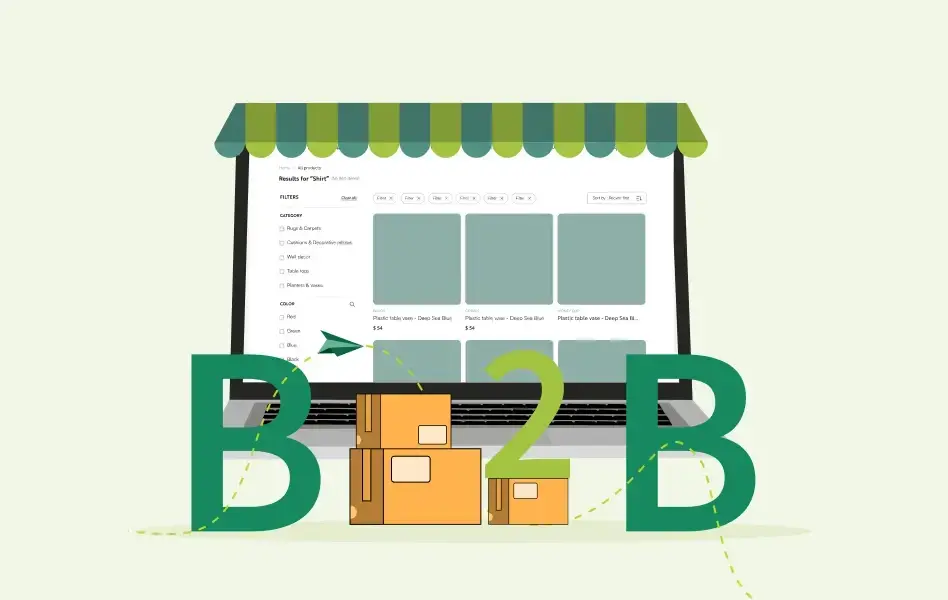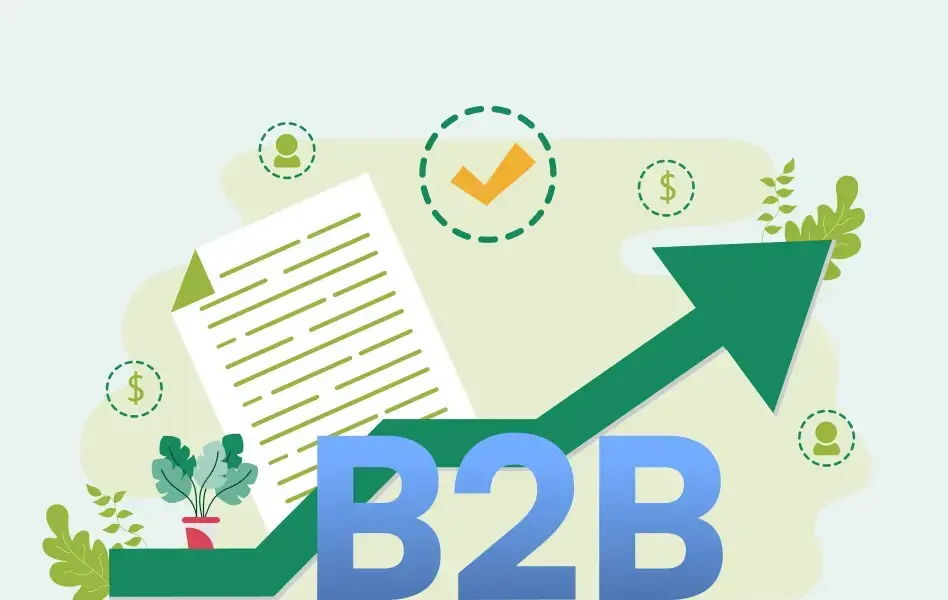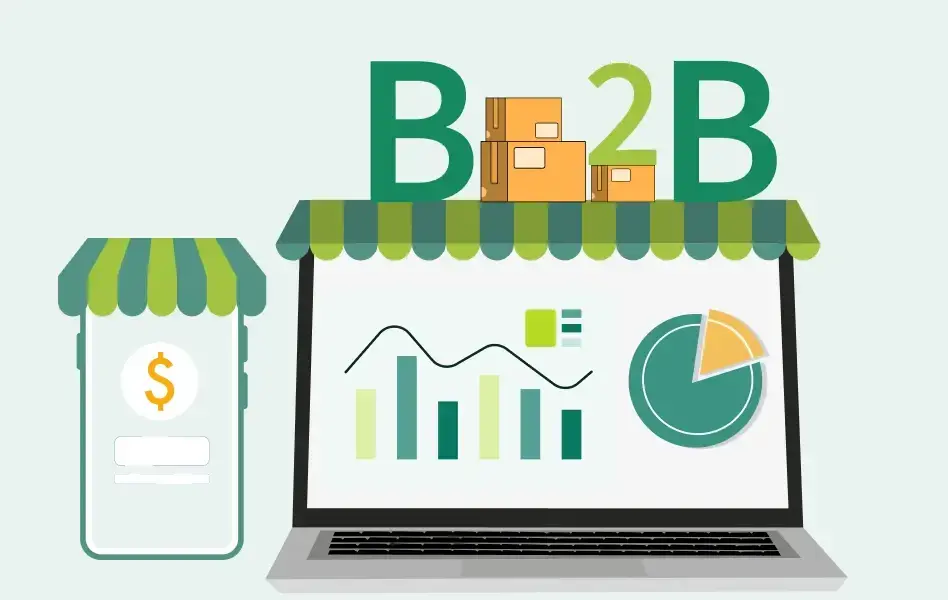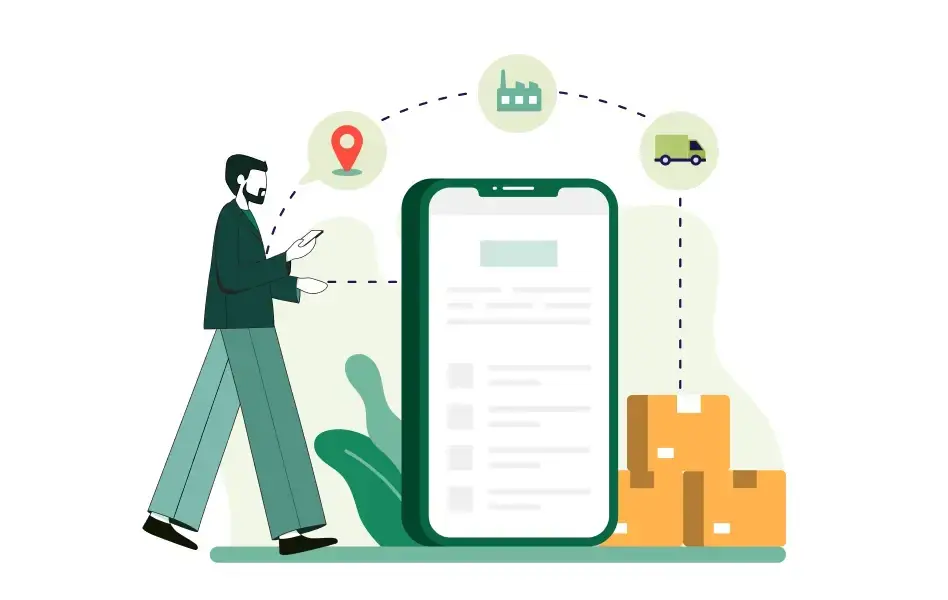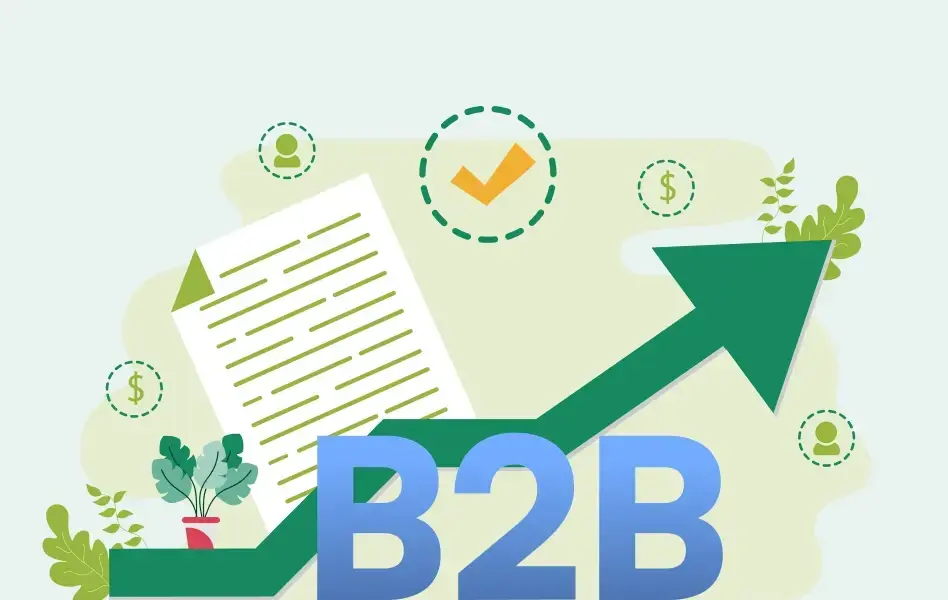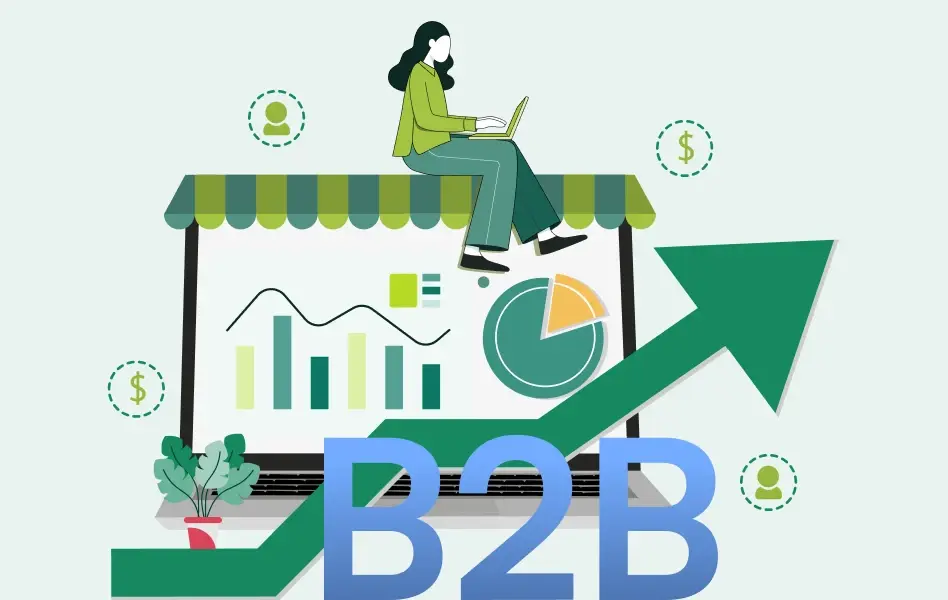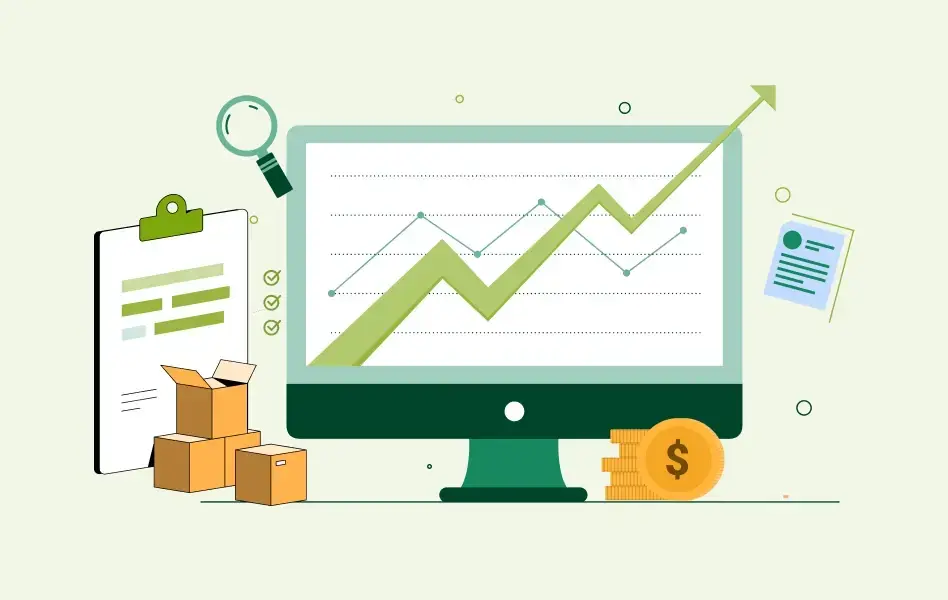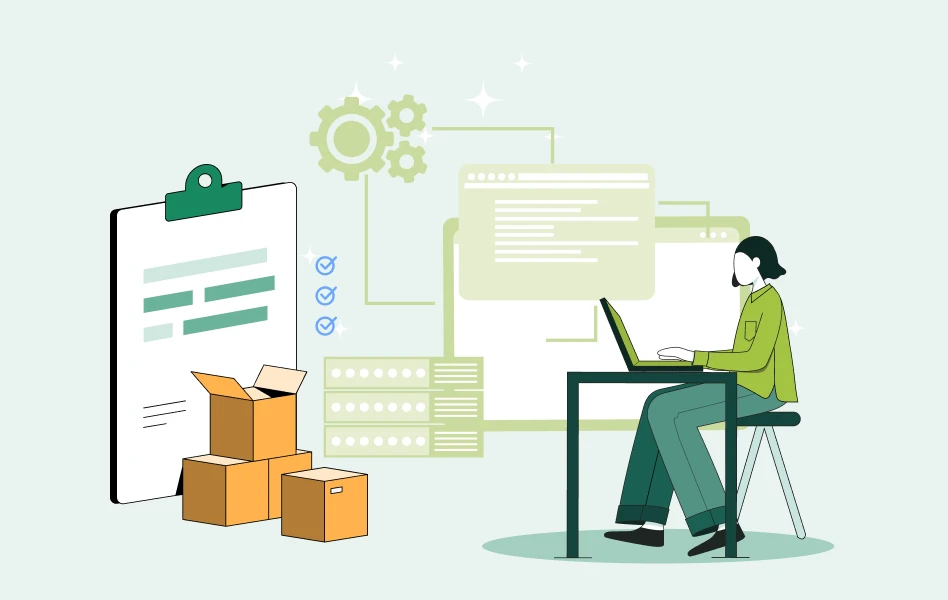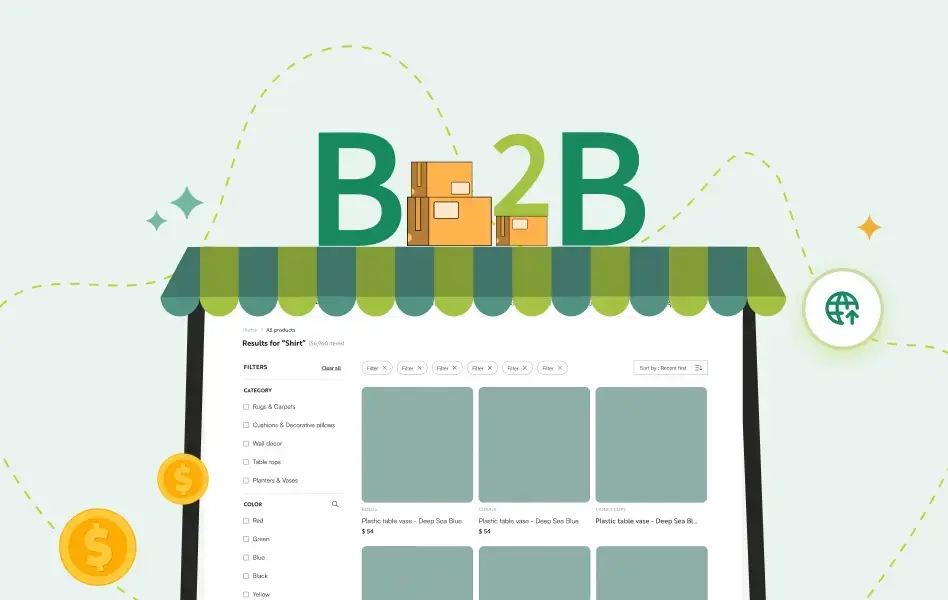Contents
Do you run a wholesale B2B company? If yes, you have come to the correct place. The B2B market today is competitive but highly lucrative. Imagine a giant market where companies buy and sell goods in bulk. This enormous market generates 100 billion dollars in sales each month in the U.S. alone.
With the rise of B2B e-commerce platforms, it’s easier than ever for businesses to connect with wholesale customers. These platforms help companies access the goods they need quickly and efficiently.
Now, let’s explore how B2B business trade works, its benefits and challenges, and some tips for running a successful B2B wholesale business using modern e-commerce platforms.
Understanding B2B Wholesale
B2B wholesalers are essential players in buying products from manufacturers and then reselling them in large quantities to retailers and other organizations. This process ensures that goods move smoothly from the producer to the consumer. Wholesale B2B is a critical negotiator in the supply chain for many industries.
The trade (Buying and selling financial products to turn a profit is known as trading) in B2B wholesale is a big part of business activity in the U.S. and worldwide. Research says 80% of business-to-business (B2B) purchases between suppliers and buyers will happen online by 2025.
The phrase “business-to-business” or “B2B” refers to the transactional interaction between two well-established companies, such as a retailer and a wholesaler or a manufacturer and a retailer. So, B2B is a business model where goods and services are exchanged between companies instead of directly with customers.
Additionally, when it comes to B2B wholesale, you can use direct or indirect channels. Direct channels involve selling products straight from the manufacturer to the retailer. Indirect channels use intermediaries like B2B wholesalers, who buy from manufacturers and sell to retailers. B2B wholesalers are crucial in distributing products and achieving economies of scale. What does this mean? By purchasing in bulk and reselling, they help lower costs and make products more available, highlighting the importance of B2B in the market.
The Benefits of Engaging in B2B Wholesale
The distribution industry noticed massive growth in digital commerce, with B2B e-commerce sales increasing by 17% in 2023 to surpass $2 trillion. Engaging in B2B wholesale offers numerous benefits for sellers and buyers, making it an attractive business model. As a seller, B2B can significantly boost your business in various ways:
- Selling products in bulk through B2B wholesale naturally increases the average order value, leading to higher revenue per transaction compared to individual sales.
- Providing a more stable and predictable source of income. This consistency helps in better financial planning and growth.
- Engaging in wholesale B2B opens opportunities for connecting with a broader range of businesses. This extensive customer base can increase market penetration and business expansion.
- Selling bulk quantities to other businesses often increases overall sales. Larger orders mean more products will be moved in a shorter period, enhancing your business’s growth.
For buyers, B2B wholesale provides substantial advantages:
- Buying in bulk through wholesale B2B allows businesses to take advantage of volume discounts. These discounts reduce the overall cost per unit, making it a cost-effective purchasing strategy.
- Offering buyers flexibility regarding order quantities and delivery schedules. This adaptability can help businesses manage inventory better and respond quickly to market demands.
Beyond the direct benefits for sellers and buyers, B2B wholesale offers several general advantages:
- Operating as a B2B wholesaler can enhance your brand’s visibility in the market. By supplying various businesses, your brand becomes more recognized and trusted.
- Controlling over product inflows and outflows allows for more efficient inventory management. This control helps prevent overstocking or stockouts, optimizing the supply chain.
- Setting a fixed profit margin ensures predictable and stable profitability. This financial stability helps with better business planning and sustainability.
- Enabling more accurate and fixed budgets. This financial predictability supports strategic planning and investment decisions.
Before starting a B2B wholesale venture, it’s essential to be thoroughly prepared. Here are some fundamental considerations you should keep in mind.
Considerations Before Starting B2B Wholesale
Starting a B2B venture is a significant step that can open doors to substantial growth and profitability. Before taking the plunge, it’s crucial to carefully plan and understand various aspects of the B2B landscape. Some key considerations should be at the forefront of your planning process:
Determining Business Goals and Readiness
Before embarking on your B2B wholesale journey, you must clearly understand your business goals and assess your readiness. Ask yourself what you aim to achieve through this venture. Are you looking to expand your market reach, increase revenue, or establish a strong presence in a new sector? Clearly defined goals will guide your strategies and decision-making processes. Assessing your readiness involves evaluating your current resources, capabilities, and infrastructure. You should evaluate criteria such as:
- Do you have the necessary supply chain management systems in place?
- Is your team prepared to handle the complexities of B2B transactions, which often involve larger volumes and longer sales cycles than B2C transactions?
Conducting a thorough readiness assessment helps you identify gaps that need to be addressed before starting.
Understanding the Size and Projected Growth of B2B Wholesale
The global wholesale B2B e-commerce market is vast and growing. Understanding its size and projected growth is essential for strategic planning. This significant growth can be attributed to several factors:
- Rise of B2B e-commerce: Online platforms are streamlining B2B transactions, making it easier and faster for businesses to buy and sell in bulk.
- Shifting customer preferences: Businesses are increasingly seeking convenient and efficient purchasing methods, which B2B e-commerce provides.
- Globalized market: The ease of international trade is fostering a globalized B2B market, opening up new opportunities for businesses of all sizes.
Identification of Potential Customer Base
Identifying your potential customer base is a cornerstone of your B2B wholesale strategy. You need to determine your target customers and how you can reach them effectively. This involves segmenting your market based on industry, size, and purchasing behavior. Consider whether you will use direct or indirect sales channels to reach your customers. Direct sales channels involve selling directly to businesses through your sales team or e-commerce platform.
This approach allows for more control over the customer experience and relationship management. However, it requires significant resources and expertise in sales and marketing.
Now that you have a solid foundation for beginning your B2B venture, it’s time to delve into the challenges you might face and how to overcome them.
Challenges Faced in B2B Wholesale
Challenges are everywhere in business, and B2B wholesale is no exception. Successfully operating in this field requires understanding the everyday hurdles you’ll face and strategies to overcome them. Here are some key challenges you should prepare for:
-
Control Over Sales and Stock Issues
Managing sales and inventory in B2B wholesale can be complex. You need to ensure that your stock levels meet your customers’ demands without overstocking. Effective inventory management systems and real-time data tracking are essential to avoid stockouts or excess inventory, which can disrupt your business operations.
-
Building and Maintaining Relationships
Strong relationships with suppliers, distributors, and customers are vital. In B2B, partnerships are often long-term and require trust and effective communication. Regular interactions, transparent dealings, and prompt attention to partner concerns can help maintain these crucial relationships, loyalty, and smooth operations.
-
Dealing with Longer Sales Processes
B2B sales cycles are typically longer and more complex than B2C. You’ll need to operate with multiple decision-makers, lengthy negotiations, and detailed contracts. Patience, persistence, and a well-organized sales process are crucial to successfully managing these extended timelines and closing deals.
-
Global Competitiveness and Efficient Shipping
Competing globally means dealing with diverse markets and robust shipping logistics. You must ensure your products reach international customers efficiently and cost-effectively. This involves understanding various regulatory requirements, optimizing your supply chain, and working with reliable logistics partners to manage global distribution seamlessly.
Steps to Launch a B2B Wholesale Business
Starting a B2B wholesale business requires careful planning and strategic decision-making to ensure a successful launch. Here are the key steps to help you modify the process effectively:
Choosing the Right Products
- Conduct thorough market research to identify the demand for specific products in the B2B sector.
- Consider the profitability, competition, and potential for growth in the chosen product category.
- Evaluate your expertise and interests to select products that align with your business goals and target market.
Selecting a Suitable B2B E-commerce Platform
- Evaluate different B2B e-commerce platforms based on your business requirements, scalability, and budget.
- Consider features like customer segmentation, pricing flexibility, and integrations with other business tools.
- Choose a platform that offers your clients a seamless wholesale purchasing experience while providing efficient order management capabilities.
Setting Up the E-commerce Store
- Customize your e-commerce store to cater to the specific needs of B2B customers, such as bulk ordering, tiered pricing, and account management features.
- Develop a comprehensive marketing strategy that targets B2B buyers through channels like content marketing, email campaigns, and industry partnerships.
- Optimize your website for search engines and create compelling product descriptions and visuals to attract and convert leads effectively.
Establishing Supplier Relationships
- Identify reliable suppliers who can provide high-quality products consistently and at competitive prices.
- Negotiate favorable terms with suppliers to ensure smooth inventory management and cost efficiency.
- Build long-term partnerships with suppliers to secure reliable sources for your product offerings.
Implementing Efficient Order Fulfillment Processes
- Develop smooth order processing and fulfillment workflows to meet the specific needs of B2B customers.
- Invest in inventory management systems and logistics solutions to ensure timely and accurate order deliveries.
- Provide clear communication channels and customer support throughout the ordering and fulfillment process.
Monitoring and Optimizing Performance
- Track key performance metrics such as sales, customer acquisition costs, and customer retention rates to assess the effectiveness of your business strategies.
- Analyze customer feedback and market trends to identify areas for improvement and innovation.
- Adapt to changing market conditions to maintain a competitive edge in the B2B industry.
Having outlined the key steps for launching your B2B wholesale business, let’s now explore some best practices and tips to help you thrive in this competitive landscape.
Best Practices and Tips for B2B Wholesale
1. Create Strategies for Wholesalers and Retailers
Develop a targeted approach to finding reputable wholesalers and retailers within your industry. Identify potential partners using professional networks, trade directories, and industry events. When working with wholesalers and retailers, prioritize clear communication, transparency, and mutually beneficial relationships. Establishing strong partnerships built on trust and reliability can lead to long-term success in the B2B sector.
2. Research, Start Locally, and Utilize Trade Shows
Before approaching retail stores, conduct thorough research on their target market, product requirements, and supplier expectations. Consider starting locally to build a reputation and gain valuable insights into the retail industry. Participating in relevant trade shows provides an opportunity to showcase your products directly to potential retail buyers and establish meaningful connections. Applying these strategies can increase your chances of successful collaboration with retail outlets.
3. Utilize Wholesale Marketplaces Cautiously
Approach wholesale marketplaces with caution and conduct due diligence when evaluating potential partners. To overcome risks, prioritize platforms with rigid checking processes and strong seller protections. Verify the credibility and track record of the marketplace and its users before engaging in transactions. Utilize negotiation skills to secure favorable terms and ensure that the market aligns with your business goals. By exercising caution and utilizing wholesale marketplaces strategically, you can expand your reach and access new business opportunities while minimizing potential drawbacks.
Top B2B Wholesale Platforms
1. Shopify
Shopify is an AI-driven e-commerce platform tailored for distributors to improve customer experience (CX).
Pros:
- Comprehensive feature set
- Easy to deploy
- Capable of managing multiple stores
Cons:
- Can be prone to bugs
- Requires significant resources and expensive hosting
- Complex coding often necessitates specialized developers.
- High costs for additional features
- May experience slow performance
2. WooCommerce
WooCommerce is an adaptable and open-source e-commerce platform built on WordPress.
Pros:
- Simple plug-and-play setup, making installation straightforward
- There is a wide variety of plugins and features to choose from
- Numerous free features are included.
Cons:
- Requires multiple add-ons to extend its functionality
- Potential compatibility issues with third-party plugins
- Heavily dependent on WordPress for design and user interface
- Slow back-end performance
- Not well-suited for large-scale e-commerce sites
- Limited reporting and search capabilities
3. Prestashop
PrestaShop is another free B2B wholesale platform for websites and online marketplaces.

- User-friendly back-end interface
- Extensive set of features and plugins
- Open-source nature allows for customization.
Cons:
- Limited reporting capabilities
- Poor compatibility with mobile devices
- Lacks comprehensive training and knowledge resources
- Requires payment for each additional module
- It can be slow and unstable at times.
4. BigCommerce
BigCommerce offers a B2B edition of its e-commerce platform tailored for wholesale, featuring built-in add-ons and extensions.
Pros:
- Seamless integration with third-party apps
- Detailed customer order information
- Effective multichannel e-commerce management
Cons:
- Outdated back-end interface
- Inability to create additional fields at checkout
- There is no option to personalize prices and details for clients.
- Lack of multi-site support
- Difficult product filtering
5. Magento (Adobe Commerce)
Adobe Commerce is an AI-based e-commerce platform designed for distributors to enhance customer experience (CX).
Pros:
- Extensive feature list
- Simple deployment process
- Supports multiple stores
Cons:
- The platform can be pretty buggy
- High resource demands and costly hosting
- Complex coding that often requires specialized developers
- Expensive add-ons needed for additional features
- Performance can be slow
Additional Resources
Additional resources can benefit B2B wholesalers by supporting their operations and enhancing their understanding of the industry. Services like Wholesale Helper provide valuable insights and tools tailored for wholesale businesses, offering guidance on various aspects such as sourcing products, negotiating with suppliers, and optimizing wholesale processes.
Frequently Asked Questions (FAQs)
What is B2B wholesale?
B2B wholesale refers to the business-to-business model of selling goods or services from one business to another. It involves transactions between companies rather than between a business and individual consumers, focusing on supplying products in bulk at discounted rates.
What is a B2B type of e-commerce?
B2B e-commerce involves online transactions in which one business sells products or services to another. It facilitates digital interactions and transactions, allowing companies to streamline procurement processes and access a broader range of suppliers and products.
What is wholesale e-commerce?
Wholesale e-commerce refers to the online selling of products or services in large quantities to retailers, businesses, or other resellers. It involves digital platforms and tools that cater specifically to the needs of wholesale transactions, such as bulk ordering, tiered pricing, and specialized account management features.
What is an example of B2B e-commerce?
Examples of B2B e-commerce platforms include Alibaba, ThomasNet, and Global Sources. These platforms provide online marketplaces and trading platforms for businesses to source products, connect with suppliers, and engage in B2B transactions.
What are the three types of wholesale?
The three main types of wholesale are:
- Merchant wholesalers (buying and reselling products).
- Agents and brokers (facilitating transactions between buyers and sellers).
- Manufacturers’ sales branches and offices (selling products of the company they represent).
Is Amazon a wholesale website?
While Amazon offers wholesale options through its Amazon Business platform, it primarily functions as a retail platform where businesses can sell products directly to consumers.
What is a B2B company example?
IBM, General Electric, and Cisco Systems are examples of B2B companies, as they primarily sell products and services to other businesses for their operations and use.
Who is a B2B seller?
A B2B seller is a business entity that sells products or services to other businesses, catering to corporate or institutional customers’ specific needs and requirements.
Conclusion
As you operate in the dynamic world of B2B wholesale, it’s crucial to keep an eye on the future outlook of this market. The B2B sector is assured of significant growth, driven by the increasing adoption of digital platforms, technological advancements, and evolving consumer demands.
Embracing innovative e-commerce solutions, data-driven decision-making, and streamlined supply chain management will be essential in capitalizing on emerging opportunities.
If you’ve read this blog, you’re undoubtedly considering looking for a B2B platform with all the amazing features. WizCommerce is a B2B e-commerce platform offering extensive order-tracking features that effortlessly transform your B2B customer experience. It empowers wholesalers, distributors, and manufacturers to automate their end-to-end sales.
Also, you can record all your orders, process payments, manage your inventory, and generate invoices. Want to make your business experience with advanced reporting and analytics? Book a demo now!







